Build an SEO Roadmap That Drives Real Results
An effective SEO roadmap is more than just a list of tactics—it’s a strategic guide designed to boost visibility, drive organic traffic growth, and align with long-term business goals. Without a clear structure, your SEO efforts may lack direction, miss valuable opportunities, or fail to deliver measurable outcomes.
In this article, we’ll break down how to build a high-impact SEO roadmap, discuss why performance tracking is essential, and highlight steps to align your plan with a scalable SEO strategy. If you’re serious about ranking better and attracting the right audience, having a well-defined plan is a must.
Why You Need a Strategic SEO Roadmap
A great SEO plan is not just reactive—it’s proactive and data-driven. By creating a strategic SEO roadmap, teams can:
- Prioritize high-impact tasks
- Avoid keyword cannibalization (learn more here)
- Improve resource allocation
- Align marketing and development goals
- Track progress over time with clarity
If your team struggles to align marketing efforts with technical implementation, working with Webie’s digital marketing experts can help bring clarity and structure to your process.
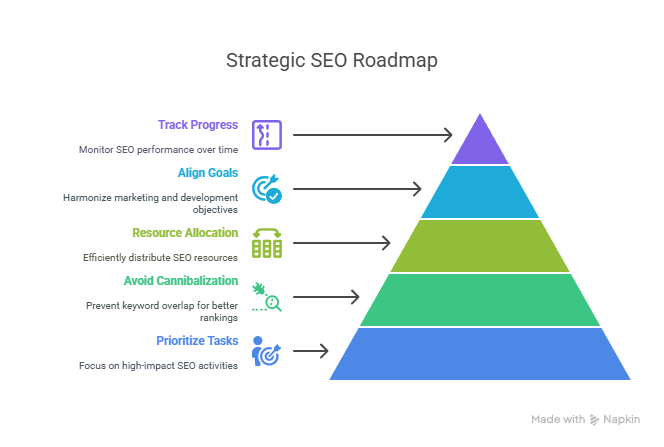
Steps to Build a Winning SEO Roadmap
Let’s explore how to build an SEO roadmap that delivers.
1. Define Your SEO Goals
Start by aligning your goals with your overall business objectives. Are you aiming for brand visibility, lead generation, or eCommerce conversions? This clarity will shape every step of your roadmap.
- Be specific: “Increase blog traffic by 30% in 6 months”
- Make it measurable and time-bound
- Prioritize KPIs like traffic, conversions, or keyword rankings
2. Conduct a Comprehensive SEO Audit
Before moving forward, you must understand your starting point. An SEO audit helps uncover technical issues, content gaps, and ranking opportunities.
Key audit components include:
- Site structure and crawlability
- On-page optimization
- Backlink profile
- Content performance
You can explore SEO tools or partner with professionals like Webie to run deep technical audits.
3. Identify Keyword Opportunities
A solid keyword research process is vital. Avoid assumptions—let data guide your targeting.
Consider:
- Long-tail keywords (e.g., how to build an SEO plan)
- Competitor keyword gaps
- Search intent variations
- Local and transactional queries
Ensure your strategy supports long-term organic traffic growth, not just quick wins.
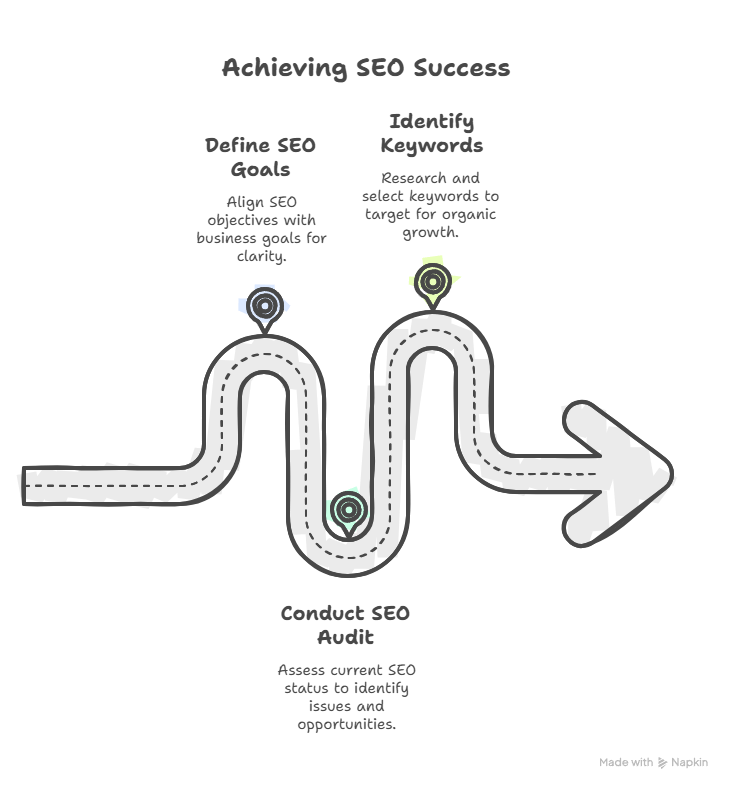
Roadmapping SEO Tasks and Timelines
Once your foundation is set, the next step is organizing initiatives into short, medium, and long-term actions. This makes it easier to track and adjust.
Short-term tasks (0–3 months):
- Fix technical SEO errors
- Update outdated content
- Optimize for featured snippets
Medium-term tasks (3–6 months):
- Launch targeted content campaigns
- Build backlinks through guest posting
- Improve mobile performance
Long-term strategies (6+ months):
- Develop topical authority
- Implement structured data
- Scale high-performing content
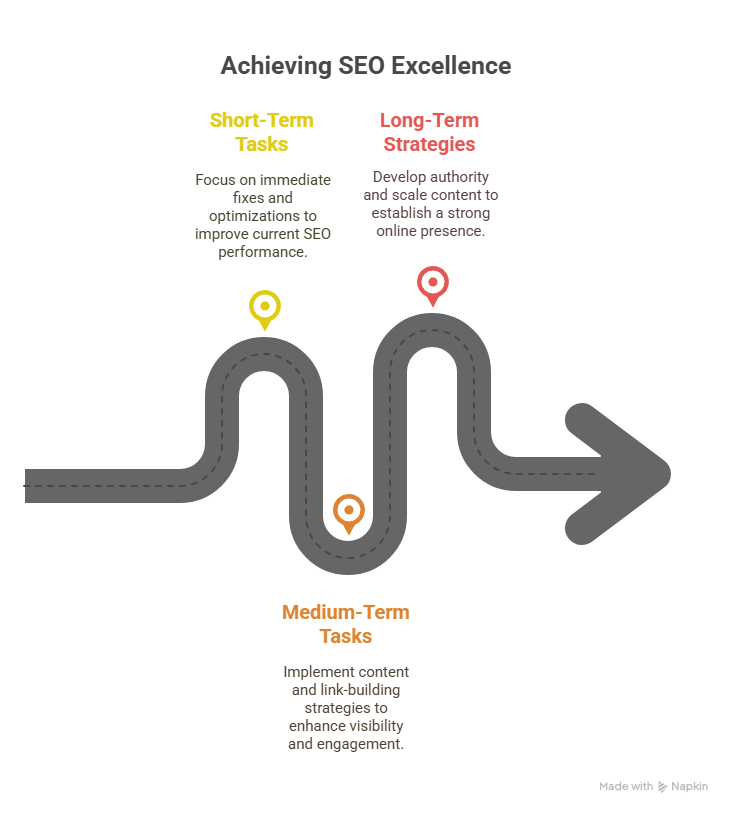
Track Performance and Adjust Regularly
No SEO strategy is complete without consistent monitoring. Use dashboards and KPIs to track what’s working—and what needs refining.
Common metrics to track:
- Organic sessions
- Keyword rankings
- Bounce rate
- Conversion rate
- Domain authority
Also, schedule monthly check-ins to adapt your roadmap to new Google updates, competitor shifts, or business pivots.
Looking to stay updated on SEO trends? Tune into our BozzaBench Podcast where we discuss what’s shaping the digital landscape each week.
Final Thoughts: Stay Agile, Stay Strategic
Crafting a results-driven SEO roadmap requires a mix of technical skill, creative thinking, and ongoing adaptation. By aligning efforts with your business vision, tracking progress diligently, and refining based on data, your roadmap becomes a growth engine—not just a checklist.
Remember:
- SEO is a long-term investment
- Stay consistent, not reactive
- Collaboration between teams enhances outcomes
And most importantly, don’t try to do everything at once. Strategic focus beats scattered execution every time.
Need help developing a roadmap that scales? Our team at Webie.com.vn can help you build, execute, and optimize your SEO framework with proven results.















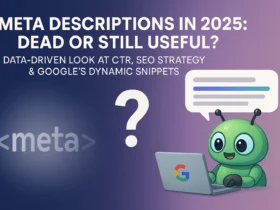

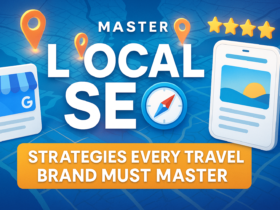







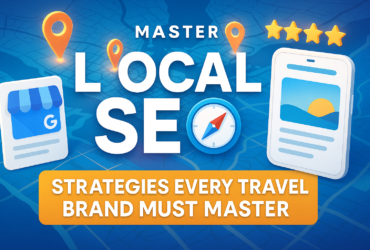

Leave a Reply